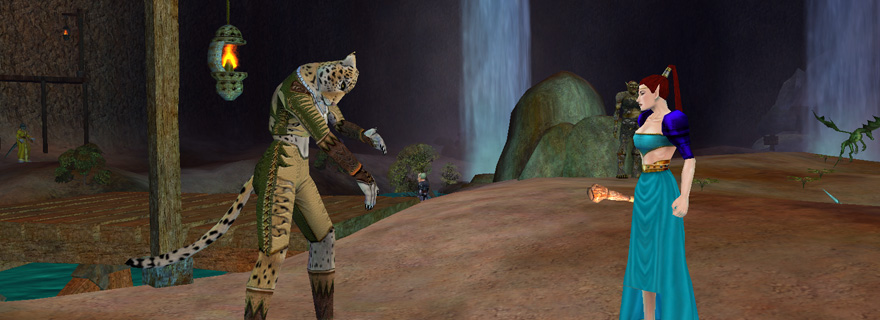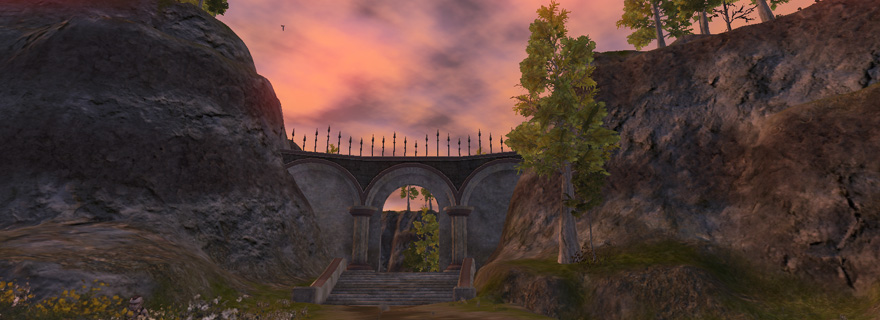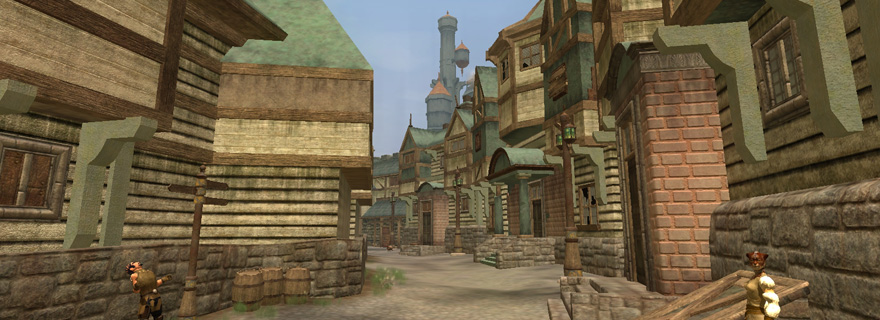
Progression servers are definitely a hot topic in the EverQuest franchise right now. EverQuest recently opened up a new one for those nostalgic for the original version of the original game (and then quickly had to open another to handle the load!), and now EverQuest II has announced that both PvE and PvP time-locked servers are in the works (beta starts July 7th). It’s definitely an exciting time for players who yearn for the simpler days, who want to travel back and experience the games before the years and years of expansions and flooded each Norrath with so much more content.
However, even positive news is not without its negatives. While there are some concrete benefits to these servers, there are also some downsides. I sat down with Producer Holly Longdale to discuss the status of the progression servers, from the things that make you go whoa to the woes that plague them.

Whoa, man
We’ve already looked at the positive message that the popularity of progression servers is sending. But the positives go beyond the industry level; they exist on a personal and community level as well. Basically, progression servers are a return to the heart of the games, and Longdale emphasized that in her discussion with me: “We want to preserve what EQ and EQII are.” These servers bring back risk and meaningfulness to game sessions. They offer the opportunity for a community to build again from the ground up, with everyone on equal footing. And they make reputation and crafting matter again!
When nearly everyone can just wipe through content by mentoring down or twinking out alts, there is little risk to be found across huge swathes of the game world. Starting over from scratch changes that. Now everyone has to build up from the beginning. And as risk increases, so too does the feeling of accomplishment when you succeed. Starting over also makes it ideal for new players who want to get in on the game but felt left behind on the current servers. With everyone at the same stage, the community members will need to work with one another and can bond together with the glue of shared experiences.
As Longdale noted, many MMO gamers want to feel that their presence and actions matter again. In our gaming, some of us ask, “Where’s my ownership, where’s my investment, why should I give a crud?” When you have a reputation to uphold, your actions matter. When people are relying on you in game, your presence matters. In the progression servers, you can matter; you don’t have to be just some RandomJoe501 who disappears in the crowd.
 Perhaps no system will reap the benefits of a progression server as much as crafting will. With everyone starting over, crafting will be meaningful again since folks will need everything and there won’t be a flood of goods already on the market. Players who want a set of cobalt armor when they reach level 40 will have to get it made! Looted treasures will also have value again; just think of the excitement of finding that last shiny you need to complete a collection. And when you find items you don’t need, there will be an actual market for them. Everything from spell books to loot drops to crafted items will be in demand again.
Perhaps no system will reap the benefits of a progression server as much as crafting will. With everyone starting over, crafting will be meaningful again since folks will need everything and there won’t be a flood of goods already on the market. Players who want a set of cobalt armor when they reach level 40 will have to get it made! Looted treasures will also have value again; just think of the excitement of finding that last shiny you need to complete a collection. And when you find items you don’t need, there will be an actual market for them. Everything from spell books to loot drops to crafted items will be in demand again.
Another great aspect of the progression servers is that players aren’t pressured to rush through to try to see all the things — and plenty of players are relishing that. Longdale told me, “That’s what we’ve seen with Ragefire. Sure, it’s not like 5 million people or anything, but it’s that appreciation for not rushing it.” In fact in EQ’s poll regarding speeding up the unlocking of Kunark, players are just saying no! EQII polls are reflecting the same attitude: Don’t rush it.
To top it all off, the communities themselves will be the ones in charge of their progression, using polls like the ones above. Longdale emphasized that her philosophy is to allow each server’s community, each very different from the others, to manage its own destiny. For instance, she says, “The PvP guys are a much smaller audience, but we’re going to try and do right by them. With everything that broke on Nagafen with later content, we’re probably going to lock that progression server much earlier, or allow them to lock themselves.” To maintain that independence, Daybreak will ensure only those players present on the specific servers get to vote.
 Woes
Woes
The first negative that the EQ team discovered was the same as the positive: the popularity. When much larger crowds descended upon the first server than expected, it became unplayable for most. Not only could players not even log in, but there was too much competition for content. To combat this, EQ is increasing player caps and adding load-balancing to Nagafen’s Lair, Permafrost Caverns, Kedge Keep, and the Hole. That way more players can get in and farm these instances for their loot. However, the raid bosses — Lord Nagafen, Lady Vox, Master Yael, Phinigel Autropos, Innoruuk, and Cazic-Thule — will appear only in the base zone, though they will spawn more frequently.
Why only one zone of raid bosses? Longdale explained, “What we don’t want to do is instance raids, which is what casuals want us to do because they want to fight Nagafen. Casuals shouldn’t be allowed to fight Nagafen… that diminishes the achievement of others. That’s part of the challenge: You have to be better than the other guy; you have to be more strategic that the other guy.”
Population issues weren’t the only ones that tarnished EQ’s progression server. One of the most-complained-about problems is the third-party boxing that is seeing a single players taking bot parties to blast through content. Longdale assures that they are aware of the issue, and they don’t want that ruining the experience even if it does provide them with subs. So how do you battle that? She explained that you can’t lock it to one account per IP because that would ruin it for families who are trying to play together.
Instead, she mentioned that he team is looked at locking logins to one account per computer on future progression servers. That way families could still game from the same house and players can still dual- or triple-box if they desperately want to. The difference is that they will have to physically run the extra accounts on different computers instead of using a third-party program. Longdale also noted that the team is going after players who are warping to boss mobs, but she can’t really discuss the how because her team needs to catch them in the act.
 Other woes for the EQII progression servers include the the crafting system and the lack of the original beginning zones. Sadly, Longdale said it’s unlikely that the old interdependent sub-component crafting system will be available as it was disallowed in the code, but she is discussing the possibility with the team.The same is true for the racial suburbs. The devs feel our pain at this; she emphasized that Daybreak would also very much like to see the burbs return as well. “If we could flip a switch and turn the burbs on, we would,” she said. However, she explained that to try and tie together threads and write necessary new code to bring them back would put the launch of the progression server many months away, and the team wants to bring them to the community much sooner that that.
Other woes for the EQII progression servers include the the crafting system and the lack of the original beginning zones. Sadly, Longdale said it’s unlikely that the old interdependent sub-component crafting system will be available as it was disallowed in the code, but she is discussing the possibility with the team.The same is true for the racial suburbs. The devs feel our pain at this; she emphasized that Daybreak would also very much like to see the burbs return as well. “If we could flip a switch and turn the burbs on, we would,” she said. However, she explained that to try and tie together threads and write necessary new code to bring them back would put the launch of the progression server many months away, and the team wants to bring them to the community much sooner that that.














